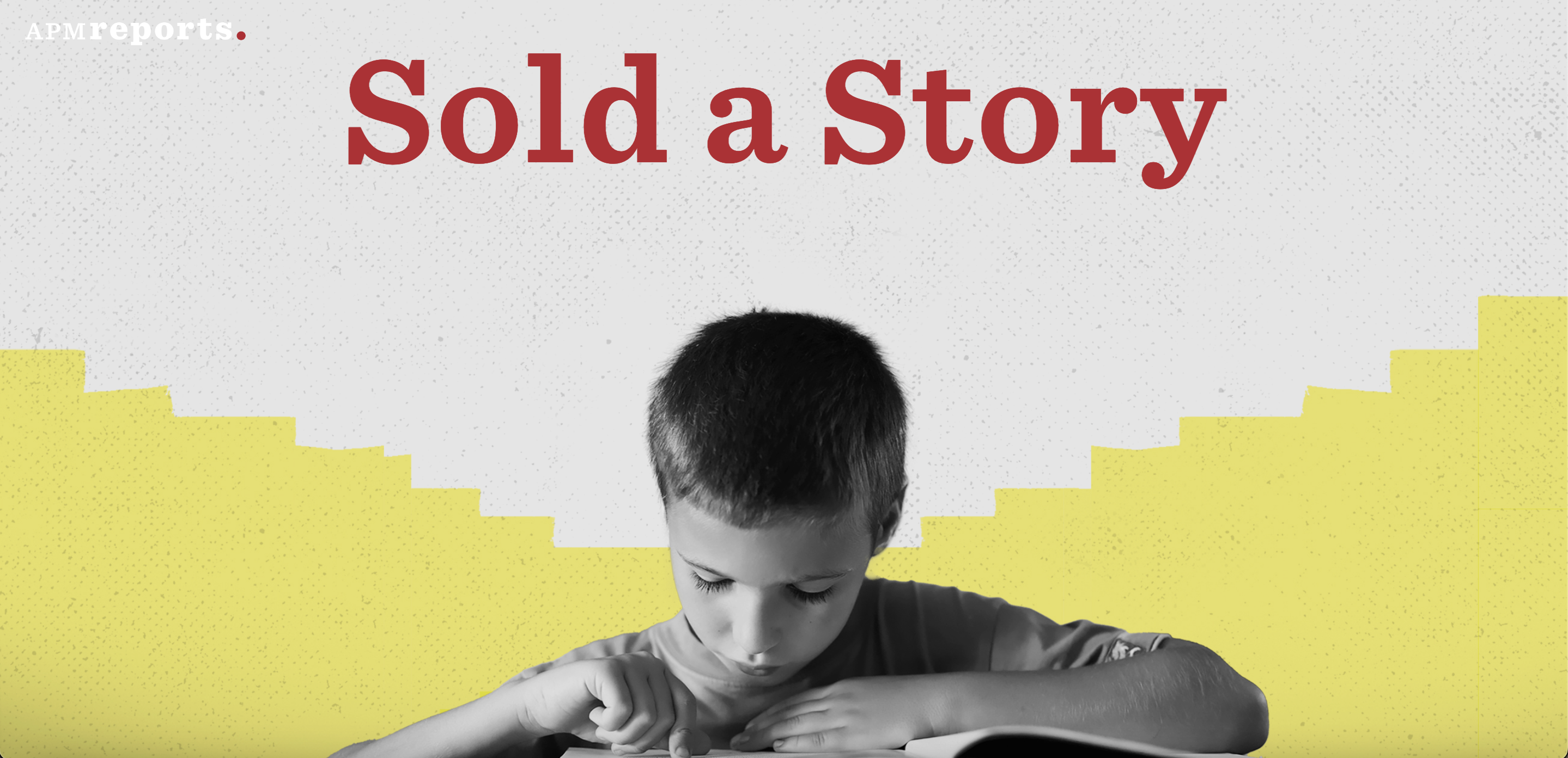
Oct 20, 2022 12:00:00 PM
Sold a Story, Emily Hanford’s most recent podcast about reading instruction in this country, opens with a story that is painfully familiar. Like Corinne Adams, the mom featured at the beginning of Episode 1, I discovered during remote schooling that my son, then a first-grader, could not read.
He could only look at the first letter of the word and guess the rest. Like Adams, I reached out to his teacher for help, only to be assured that he was doing fine.
Like Adams, I had to teach my kids to read myself.
Sold a Story explains how a method of reading instruction, termed “whole language,” came to dominate American schools—even though this method has been long debunked by cognitive scientists. It is the story of how personalities, publishing companies, and wishful thinking has prevailed over science and common sense. But most of all, it is the story of the persistence of bad ideas.
After I listened to the first two episodes in this six-part series, I was left thinking about why and how we, as a society, have tolerated this state of affairs for so long. In the City of Chicago, only 15% of Black fourth-graders could read proficiently—before the pandemic. For Latinx fourth-graders, the number was only a bit better: 21%. Among fourth-graders who qualify for free lunch, the number was 18%.
Parents with inflexible work hours, parents who work multiple jobs to keep their families afloat, and parents who cannot themselves read and write in English simply cannot teach their kids to read. Some parents pay for private reading instruction, but that can cost up to $850 per month per child in the Chicago area.
I suspect that, as a society, we tolerate dismal reading achievement because of what one teacher says at the beginning of Sold a Story: “When it didn’t work, I blamed the children.” Whole language posits that kids don’t need to sound out words because reading is a natural process. If children are in an environment rich with literature and surrounded by books, if parents read to their children, if children love reading and want to read, then they will learn how.
Whenever I hear this theory, I think of my son, who would grab grown-up books and look at the pages for hours. I think he thought that if he stared at the letters for long enough, they would begin to make sense to him. We read to him from the day we brought him home from the hospital. He grew up in a house full of books.
If the theory of whole language were correct, what would happen to kids who do not grow up in a literacy-rich environment? What if their parents cannot read in English, or in any language? By the logic of this now-debunked theory, they could not be helped.
While one teacher blamed the kids, I suspect that others blame parents.
Those parents don’t have books in their homes.
Those parents don’t read to their kids.
Those parents don’t take their kids to the library.
Those parents don’t really value education.
In other words, we tolerate the dismal literacy rates of our Black and Brown kids because the misguided, yet persistent theory of whole language makes it easy for earnest liberals to indulge the racial stereotypes that they think they don’t have. Those stereotypes, like that misguided theory, still lurk in their subconsciousness.
Effective reading instruction is a matter of economic, social, and racial justice. Poor kids, Black and brown kids, kids of single parents, kids of illiterate parents, kids of parents who don’t speak English—they can all learn to read. That’s what the science says. And it’s up to all of us to make sure that all kids do learn to read.
Tisha M. Rajendra is a literacy advocate, tutor and parent of eight-year-old twins. She is also Associate Professor of Christian Ethics at Loyola University Chicago.
The story you tell yourself about your own math ability tends to become true. This isn’t some Oprah aphorism about attracting what you want from the universe. Well, I guess it kind of is, but...
If you have a child with disabilities, you’re not alone: According to the latest data, over 7 million American schoolchildren — 14% of all students ages 3-21 — are classified as eligible for special...
The fight for educational equity has never been just about schools. The real North Star for this work is providing opportunities for each child to thrive into adulthood. This means that our advocacy...
Your donations support the voices who challenge decision makers to provide the learning opportunities all children need to thrive.
Ed Post is the flagship website platform of brightbeam, a 501(c3) network of education activists and influencers demanding a better education and a brighter future for every child.
© 2020–2024 brightbeam. All rights reserved.
Leave a Comment